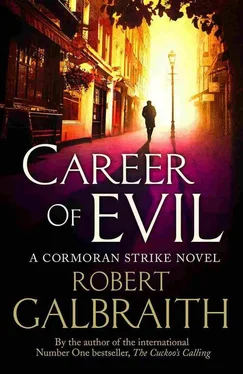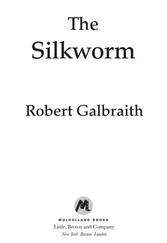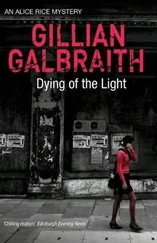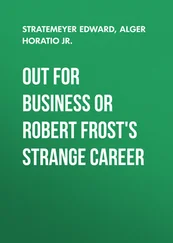“Do you recognize her?”
Wardle’s voice sounded startlingly close to Robin. She had felt as though she had traveled a long distance as she stared at the severed head.
“No,” said Robin.
She put the picture down and took the next from Strike. A left leg and two arms had been rammed into the fridge, where they had begun to decompose. Having steeled herself for the head she had not thought anything else could be as bad and she was ashamed of the small bleat of distress that escaped her.
“Yeah, it’s bad,” said Detective Sergeant Ekwensi quietly. Robin met her eyes with gratitude.
“There’s a tattoo on the wrist of the left arm,” Wardle pointed out, handing them a third picture in which the relevant arm lay outstretched on a table. Now feeling definitely nauseated, Robin looked and made out “1D” in black ink.
“You don’t need to see the torso,” said Wardle, shuffling the photographs and handing them back to Detective Sergeant Ekwensi.
“Where was it?” asked Strike.
“In the bath,” said Wardle. “That’s where he killed her, the bathroom. It looked like an abattoir in there.” He hesitated. “The leg wasn’t the only thing he cut off her.”
Robin was glad that Strike did not ask what else had gone. She did not think she could stand to hear.
“Who found her?” asked Strike.
“The landlady,” said Wardle. “She’s elderly and she collapsed right after we got there. Looks like a heart attack. They took her to Hammersmith Hospital.”
“What made her go round?”
“Smell,” said Wardle. “Downstairs had rung her. She decided to pop in early before doing her shopping, try and catch this Oxana at home. When she didn’t answer the landlady let herself in.”
“Downstairs hadn’t heard anything — screams — anything?”
“It’s a converted house full of students. Less than bloody useless,” said Wardle. “Loud music, mates coming and going all hours, they gaped like sheep when we asked them if they’d heard anything from upstairs. The girl who’d rung the landlady had total hysterics. She said she’d never forgive herself for not phoning up when she first smelled something bad.”
“Yeah, that would’ve changed everything,” said Strike. “You could’ve stuck her head back on and she’d have been fine.”
Wardle laughed. Even Detective Sergeant Ekwensi smiled.
Robin stood up abruptly. Last night’s wine and this morning’s croissant were churning horribly in her guts. Excusing herself in a small voice, she moved briskly towards the door.
I don’t give up but I ain’t a stalker,
I guess I’m just an easy talker.
Blue Öyster Cult, “I Just Like to Be Bad”
“Thank you, I get the concept of gallows humor,” said Robin an hour later, part exasperated, part amused. “Can we move on?”
Strike regretted his witticism in the meeting room, because Robin had returned from a twenty-minute bathroom trip looking white and slightly clammy, a whiff of peppermint revealing that she had cleaned her teeth again. Instead of taking a taxi he had suggested they take a short walk in the fresh air along Broadway to the Feathers, the closest pub, where he ordered them a pot of tea. Personally, he was ready for a beer, but Robin had not been trained up to consider alcohol and bloodshed natural fellows and he felt a pint might reinforce her impression of his callousness.
The Feathers was quiet at half past eleven on a Wednesday morning. They took a table at the back of the large pub, away from a couple of plainclothes officers who were talking in soft voices near the window.
“I told Wardle about our friend in the beanie while you were in the bathroom,” Strike told Robin. “He says he’s going to put a plainclothes man around Denmark Street to keep an eye out for a few days.”
“D’you think the press are going to come back?” asked Robin, who had not yet had time to worry about this.
“I hope not. Wardle’s going to keep the fake letters under wraps. He says it’s playing into this nutter’s hands to release them. He inclines to the view that the killer’s genuinely trying to frame me.”
“You don’t?”
“No,” said Strike. “He’s not that unhinged. There’s something weirder going on here.”
He fell silent and Robin, respecting his thought process, maintained her own silence.
“Terrorism, that’s what this is,” said Strike slowly, scratching his unshaven chin. “He’s trying to put the wind up us, disrupt our lives as much as possible; and let’s face it, he’s succeeding. We’ve got police crawling over the office and calling us into the Yard, we’ve lost most of our clients, you’re—”
“Don’t worry about me!” said Robin at once, “I don’t want you to worry—”
“For fuck’s sake, Robin,” said Strike on a flash of temper, “both of us saw that guy yesterday. Wardle thinks I should tell you to stay home and I—”
“Please,” she said, her early-morning fears swarming back upon her, “don’t make me stop work—”
“It’s not worth being murdered to escape your home life!”
He regretted saying it immediately, as he saw her wince.
“I’m not using it as an escape,” she muttered. “I love this job. I woke up this morning feeling sick about what I told you last night. I was worried you — might not think I’m tough enough anymore.”
“This hasn’t got anything to do with what you told me last night and nothing to do with being tough. It’s about a psycho who might be following you, who’s already hacked a woman to bits.”
Robin drank her lukewarm tea and said nothing. She was ravenous. However, the thought of eating pub food containing any form of meat made sweat break out over her scalp.
“It can’t have been a first murder, can it?” Strike asked rhetorically, his dark eyes fixed on the hand-painted names of beers over the bar. “Beheading her, cutting off her limbs, taking bits of her away? Wouldn’t you work up to that?”
“You’d think so,” Robin agreed.
“That was done for the pleasure of doing it. He had a one-man orgy in that bathroom.”
Robin was now unsure whether she was experiencing hunger or nausea.
“A sadistic maniac who’s got a grudge against me and has decided to unite his hobbies,” Strike mused aloud.
“Does that fit any of the men you suspect?” Robin asked. “Have any of them killed before, that you know of?”
“Yeah,” said Strike. “Whittaker. He killed my mother.”
But in a very different way, thought Robin. It had been a needle, not knives, that had dispatched Leda Strike. Out of respect for Strike, who was looking grim, she did not voice the thought. Then she remembered something else.
“I suppose you know,” she said cautiously, “that Whittaker kept another woman’s dead body in his flat for a month?”
“Yeah,” said Strike. “I heard.”
The news had filtered through to him while he was out in the Balkans, passed on by his sister Lucy. He had found a picture online of Whittaker walking into court. His ex-stepfather had been almost unrecognizable, crew-cutted and bearded, but still with those staring gold eyes. Whittaker’s story, if Strike remembered correctly, had been that he had been afraid of “another false accusation” of murder, so he had attempted to mummify the dead woman’s body, binding it up in bin bags and hiding it under floorboards. The defense had claimed to an unsympathetic judge that their client’s novel approach to his problem was due to heavy drug use.
“He hadn’t murdered her, though, had he?” Robin asked, trying to remember exactly what Wikipedia had said.
“She’d been dead a month, so I doubt it was an easy post-mortem,” said Strike. The look that Shanker had described as ugly had returned. “Personally, I’d lay odds he killed her. How unlucky does a man get, two of his girlfriends dropping dead at home while he’s sitting there doing nothing?
Читать дальше











